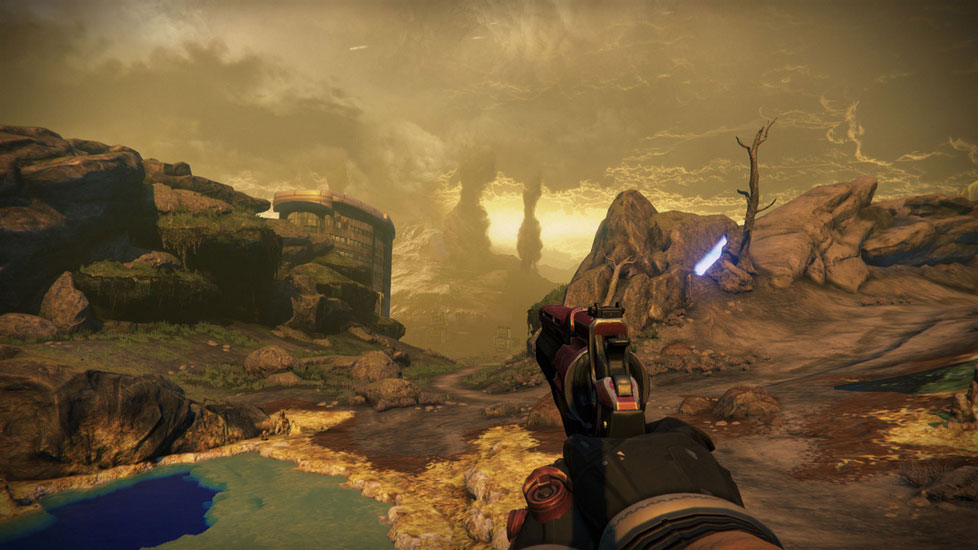 I entered Gamestop on Friday night, clutching my copy of Destiny in my hands. The game had a $40 trade-in value that I planned to take advantage of while it lasted. Ahead of me in line, someone else clearly had the same idea. As the cashier looked up, his eyes landed on my game and he groaned. “Another one? Why is everybody trading in this game!”
I entered Gamestop on Friday night, clutching my copy of Destiny in my hands. The game had a $40 trade-in value that I planned to take advantage of while it lasted. Ahead of me in line, someone else clearly had the same idea. As the cashier looked up, his eyes landed on my game and he groaned. “Another one? Why is everybody trading in this game!”
From the beginning, Destiny was almost doomed to fail. It was released with impossibly high expectations. The first game released by the powerhouse duo of Bungie and Activision, the game cost more than $500 million to release and it’s been hailed as the biggest flagship game for the newest systems. Considering how poor the overall selection is for this not-quite-totally-new consoles, there were high expectations that this would finally be the game to make the costly hardware upgrade worthwhile.
It’s not.
Don’t get me wrong, Destiny is a perfectly decent game. It’s visually stunning, with animation so breathtaking it’s impossible to tell where a cinematic ends and the game begins. And the idea behind it is compelling: a massively multiplayer online shooter geared toward the social experience. It’s meant to play like an upgraded Halo, but somehow, despite its stunning production values and costly development, it simply falls flat.
Part of the problem is that the game cannot be played without a constant, reliable internet connection – something that console gamers aren’t used to. Another issue is that your communication options are horribly stifled. Here is a world full of fellow players and no way to properly communicate with them, even when they’re your teammates for missions. Couple this major flaw with a dull solo storyline and uninspired game play that consists predominately of grinding, and you can see where the game fails to deliver what players really want.
Here is a game that tries to do too much and fails to fully deliver on any of it. It’s an RPG, but it lacks the story and character development that would make that work. It’s an MMO, but it lacks the ability to have a truly immersive social experience. It’s an FPS, but its AI is clumsy and lacking in finesse – new enemies don’t pose any unique strategic challenges, they just have more health. And all of these flaws might have been forgivable in a smaller release – but Bungie should know better.
Reviews for the game are a mixed bag. The bigger outlets still seem dazzled by the game’s ambitions, with IGN giving it a 7.6 rating despite spending much of the review pointing out its flaws (https://www.ign.com/videos/2014/09/18/destiny-review). Gamespot gives it a less charitable 3/5 (https://www.gamespot.com/destiny/reviews/), and you can easily see from player reviews that people are overwhelmingly disappointed.
Of course, none of this has hurt Activision/Bungie’s bottom line. The game still raked in a staggering $325 million, the biggest income of any new game release to date (but still not enough to break even with its production values). Time will tell if the game will continue to earn sales and break even or make a profit. An MMO can only survive as long as people are willing to play it; if most of those early release copies find their way back onto the “Pre-Owned” shelf at Gamestop, there will be nothing left for the people who have tried to stick with it.





